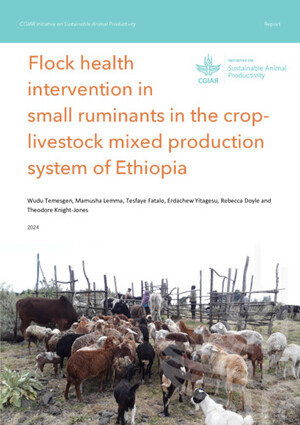
Innovation packages and scaling readiness workshop: Thermotolerant peste des petits ruminants vaccine
Abstract
In Mali, due to the country's strong agropastoral tradition, animal husbandry is an important activity in the family farm economy. Livestock is the main source of subsistence income for more than 30% of the population. Overall, 85% of rural households own ruminants, which reflects the economic and social importance of livestock in Mali. Livestock production contributes 80% of the income of rural populations living in pastoral systems and 18% in agropastoral systems. Mali’s national herd is the largest in the West Africa Economic Monetary Union (WAEMU) and the second largest in the Economic Community of West African States (ECOWAS) after Nigeria. Livestock contributes 13.6% to gross domestic product, 24% to production in the rural sector, and nearly 20% to export earnings.
Citation
Dione, M., Jasada, I., Maiga, A., Sow, A., Zannou, O., Rekik, M. and Hoek, R. van der. 2024. Innovation packages and scaling readiness workshop: Thermotolerant peste des petits ruminants vaccine. Nairobi, Kenya: ILRI.








